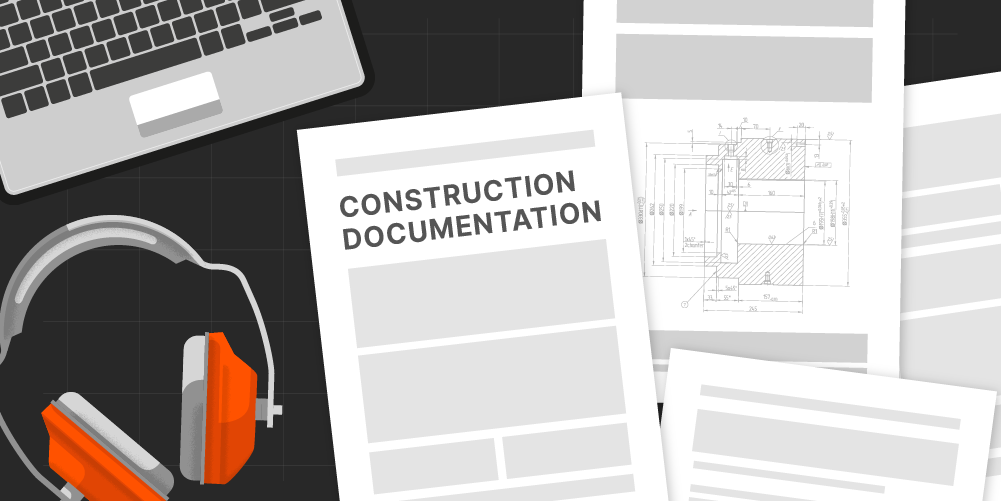— 7 min read
Construction Project Management Explained: Key Roles, Phases, and Best Practices
Last Updated Feb 23, 2025
Last Updated Feb 23, 2025

Construction is an incredibly demanding undertaking, involving a vast number of moving parts and precise requirements related to cost, timeframes, quality, and safety. Effective project management provides the structure, oversight, and strategic direction needed to guide a project from the start through to its completion—ensuring all stakeholders remain aligned and focused on delivering the client’s vision.
Depending on the project structure, management responsibilities may fall to the developer, client, or general contractor. For highly complex projects—such as public-private partnership infrastructure developments, major mixed-use projects, or new housing estates—a dedicated project management team often takes the lead, acting on behalf of the project owner. This team coordinates contractors, designers, consultants, and subcontractors to streamline operations and ensure seamless execution.
Table of contents
What is Construction Project Management?
Construction project management is the structured process of planning, coordinating, and controlling a project from start to finish. It ensures that resources—including time, budget, labour, and materials—are strategically allocated to meet project goals while maintaining compliance with contractual obligations, regulatory requirements and industry standards.
At its core, project management integrates key functions such as:
- Scope Management – Defining project objectives, deliverables, and success criteria.
- Time Management – Developing schedules, tracking progress, and mitigating delays.
- Cost Management – Budgeting, cost estimation, and financial oversight to prevent overruns.
- Quality Management – Ensuring quality control, that workmanship meets design specifications, safety standards, and contractual obligations.
- Risk Management – Identifying potential issues early and implementing strategies to mitigate them.
- Stakeholder Communication – Communicating and coordinating between owners, contractors, subcontractors, suppliers, and regulatory bodies to ensure alignment and accountability.
The complexity of construction projects—ranging from residential builds to large-scale infrastructure—makes effective project management essential. Whether managed in-house by the developer, through the general contractor, or by a dedicated project management firm, a strong project management framework is crucial for delivering projects on time, within budget, and to the required quality standards.
Project management means constantly negotiating the golden triangle - time, cost, and quality. The challenge lies in finding the optimal balance between these three competing constraints. For example, accelerating the project schedule might require additional resources, which would increase costs. Similarly, reducing costs might involve using less expensive materials or labor, which could compromise quality.
Successful project management requires a deep understanding of the relationships between time, cost, and quality, as well as the ability to make informed decisions that prioritise the project's overall objectives. This often involves trade-offs and compromises.
Michelle Stack
Senior Strategic Product Consultant
Procore
Project Management Team Roles and Responsibilities
The size of the project management team will generally reflect the complexity, scale and budget of the project – the bigger, tougher and more demanding a development proposal is, the larger the project management team is likely to be. For small projects, many of the functions associated with the specific roles will be carried out by either the designated project manager, a member of the consultant team, or someone within the builder’s team.
On large projects, the project management team includes professionals with specific areas of expertise that ensure the key tasks associated with oversight of detailed design, quality, project progress, safety, financials, contracts and reporting. In addition to the project manager, these roles may include:
Project manager
The project manager orchestrates the entire construction process, ensuring the project remains on schedule, within budget, and up to quality standards. They coordinate stakeholders, manage risks, resolve issues, oversee contracts and finances, and ensure regulatory and safety compliance.
“A project manager is like the conductor of a symphony. Without them, no-one would know what they were expected to do and when. The project manager ensures everyone plays their part and the whole project comes together properly.” – Michelle Stack
Design manager
This role oversees the design process, ensuring alignment with project requirements, regulatory codes, and stakeholder approvals. Responsibilities include managing the Building Information Modelling (BIM) process, verifying design variations, and coordinating approvals from subcontractors, consultants, and authorities.
Estimator / cost controller / quantity surveyor
Construction budgets are unforgiving. These professionals estimate costs in the early stages, track spending throughout construction, and identify potential budget overruns, enabling proactive financial management. Having visibility of expected costs for all materials and labour in the early stages is a crucial part of project planning. During the construction period, keeping track of costs and spend is also vital, so any signs of project budget blow-outs can be seen as early as possible and potential rectification or solutions developed and implemented.
Construction manager
A construction manager coordinates and oversees activities on site, including ensuring all subcontractors, suppliers and consultants are on-track for their deliverables. The construction manager is also the first line of defence in terms of fielding variables such as adverse weather conditions, safety incidents, supply chain issues and any other matter that may affect timely achievement of project milestones. In addition, they have a key part to play in ensuring ongoing management and reporting relating to quality, compliance and variations.
Safety manager
For this role, the responsibilities are very much what it says on the box. Ensuring safety is embedded in projects from inception to close-out includes considering safety in design, buildability aspects, risk assessment and risk management, development and oversight of project workplace health and safety protocols and practices and reporting on any near-miss or actual safety incidents.
Project administrator / coordinator / document controller
Large projects generate extensive data, reports, and communications. This role supports the project manager and team by managing documentation, tracking deadlines, and ensuring smooth collaboration between all stakeholders.
By assembling a well-structured project management team, construction projects can navigate complexities with efficiency, mitigating risks and driving successful outcomes.
The Main Phases of Project Management
Project initiation
- Leading the feasibility and business case development for the client, managing any specific stakeholder negotiations including any specific planning or regulatory requirements.
- Recruiting the design team including architect, engineers, consultants, quantity surveyor and contract administrators.
- Overseeing project tendering, including development of scopes for subcontractors and consultants, tender assessment and contracts with successful tenderers.
- Managing the development and delivery of the detailed design and lodging of relevant documentation including the development application, construction permit and any relevant environmental or statutory approvals such as pollution management plans, biodiversity offset strategies, NABERS pre-commitment agreements or Green Star rating application registration.
Project planning
- Coordinating early construction team coordination and external stakeholder engagement.
- Leading the design team’s development of construction drawings and all other delivery-related documentation including the project construction plan, construction schedule, procurement plans and project financial plans and budgeting.
Construction
- Overseeing and reporting on time, cost and quality including inspection and testing plans (ITPs), site supervisors and site manager reports and site diaries.
- Managing safety-related matters including any incidents and near-misses.
- Managing safety, risk management, variations, contingencies, and addressing any defects or rework.
- Ongoing management of contracts.
- Change management – ultimate responsibility for navigating the construction delivery team through any major disruption such as major supplier or subcontractor insolvency during the construction period, client-led variation to project specifications, or external factors such as new public health order or natural disaster.
Completion
- Managing final inspections, approvals, commissioning, and handover processes.
- Final reporting and as-built documentation management to support client and construction team through the post-completion defects liability period.
- Managing close-out of any defects or works occurring after Practical Completion.
- Final reporting to client on financials and post-completion matters such as Occupancy Permit and Green Star rating.
The beginning and end of a project are often the most intense periods. At the design stage, the challenge is aligning everyone on the project's scope and ensuring all compliance requirements are met. By the end, the pressure shifts to ensuring everything is in order for handover, and managing any last-minute issues, which can be chaotic if the project hasn't been well organised through the middle stages.
Michelle Stack
Senior Strategic Product Consultant
Procore
The Power of a Well-Structured Project Management Team
Construction project management demands discipline, exceptional organizational skills, and a high level of interpersonal communication. With the responsibility of navigating intricate details and coordinating numerous stakeholders, project managers need to master both hard and soft skills—especially when faced with fast-paced challenges. Embracing digital tools and platforms can significantly streamline workflows, ensuring that information is easily accessible and collaboration remains efficient.
One of the pain points for project management teams is the amount of information that's going backwards and forwards, for example wasting time trying to find an email that gave authorisation to do a variation and then pull that together to make a claim. So, having all of your information at your fingertips is definitely something that project management teams would appreciate.
Michelle Stack
Senior Strategic Product Consultant
Procore
Ultimately, a well-structured project management team drives the success, efficiency, and profitability of a construction project by maintaining transparency, managing risks, and fostering teamwork throughout each phase of development.
Categories:
Tags:
Written by
Michelle Stack
10 articles
Michelle Stack is a Senior Strategic Product Consultant at Procore, bringing over 20 years of experience in project management, IT solutions, and change transformation. For 7 years, she has led technology change in the construction industry working closely with teams in design and construction through to post completion. Throughout her career, Michelle has successfully aligned operations with organisational strategies, ensuring changes are implemented through clear communication, training, and evaluation. Her extensive expertise has made her a trusted leader in driving effective, sustainable transformations.
View profileExplore more helpful resources

Document Control, Mastered: Blueprints, Binders & the Cloud
In construction, poor document control is more than a hassle—it’s a liability. Mismanaged documents can delay builds, drive up costs, and cause security and compliance issues. It’s a challenge facing...

Construction Progress Claims: Keeping Cash Flowing
In construction, steady cash flow is critical—and progress claims help make that possible. These claims enable staged payments based on work completed, rather than waiting until project completion. In this...

Construction Analytics: The Key to Smarter Decision-Making
Data is everywhere in construction—embedded in schedules, site activity logs, safety reports, and cost tracking tools. Yet despite the abundance of available information, many construction decisions still hinge on gut...

Construction Document Management: The Challenges and Benefits of Embracing a DMS
Every construction project begins, continues, and ends with a mountain of paperwork. From initial bidding documents to contractor agreements, blueprints, variation orders, inspection reports, on and on it goes. And...